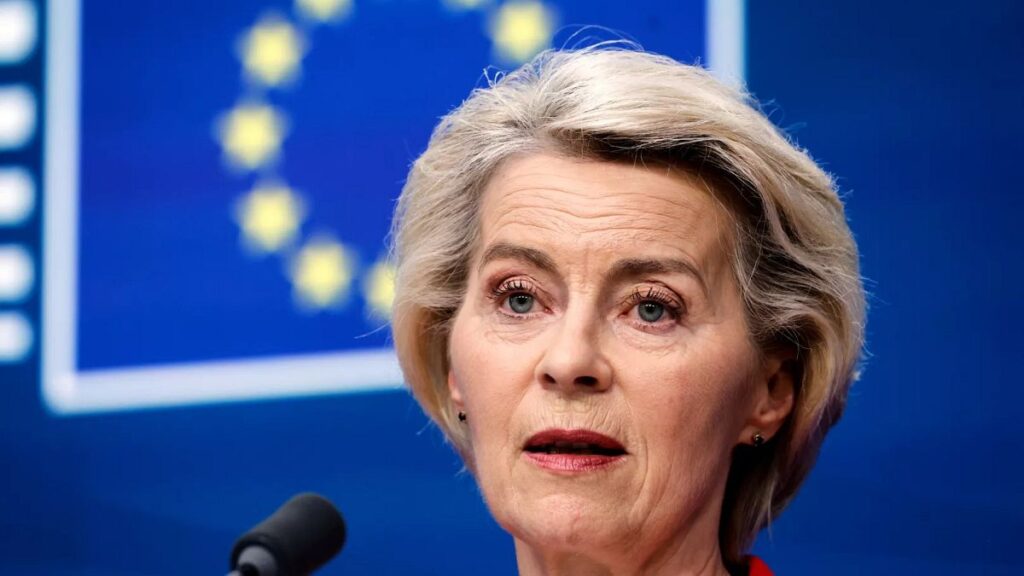By Euronews with AP
Published on
•Updated
European Union leaders are meeting with top Chinese officials in Beijing on Thursday for a one-day summit aimed at addressing trade imbalances, climate cooperation and global conflicts, though expectations for concrete outcomes are low.
European Commission President Ursula von der Leyen and European Council President António Costa will meet with Chinese President Xi Jinping and Premier Li Qiang to mark 50 years of relations between Brussels and Beijing.
Originally planned as a two-day event, the summit was scaled back amid economic uncertainty, wars in the Middle East and Ukraine and the looming threat of renewed US tariffs.
EU officials were expected to raise concerns over China’s support for Russia amid its ongoing, full-scale invasion of Ukraine, persistent cyberattacks and espionage, trade imbalances, Beijing’s near-monopoly in rare earth minerals and human rights issues in Xjinjiang, Tibet and Hong Kong.
The EU is also navigating a balancing act with Washington as it braces for a possible trade war with the US.
“Europe is being very careful not to antagonise President Trump even further by looking maybe too close to China, so all of that doesn’t make this summit easier,” said Fabian Zuleeg, chief economist of the European Policy Centre. “It will be very hard to achieve something concrete.”
There is also little likelihood of a major breakthrough amid China’s hardening stance on the EU, despite a few olive branches. This includes the suspension of sanctions on European lawmakers who criticised Beijing’s human rights abuses in Xjinjiang, a region in north-western China home to the Uyghurs.
“China has come away emboldened from its trade confrontation with Trump. That has reduced its appetite for making concessions to the EU,” Zuleeg said. “Now that Trump has backed down, China sees less of a need to wood Europe.”
China is the EU’s second-largest trading partner after the US, with around 30% of global trade flowing between them. While both sides hope to use their economic ties to help stabilise the global economy, fundamental divisions remain.
Read the full article here
